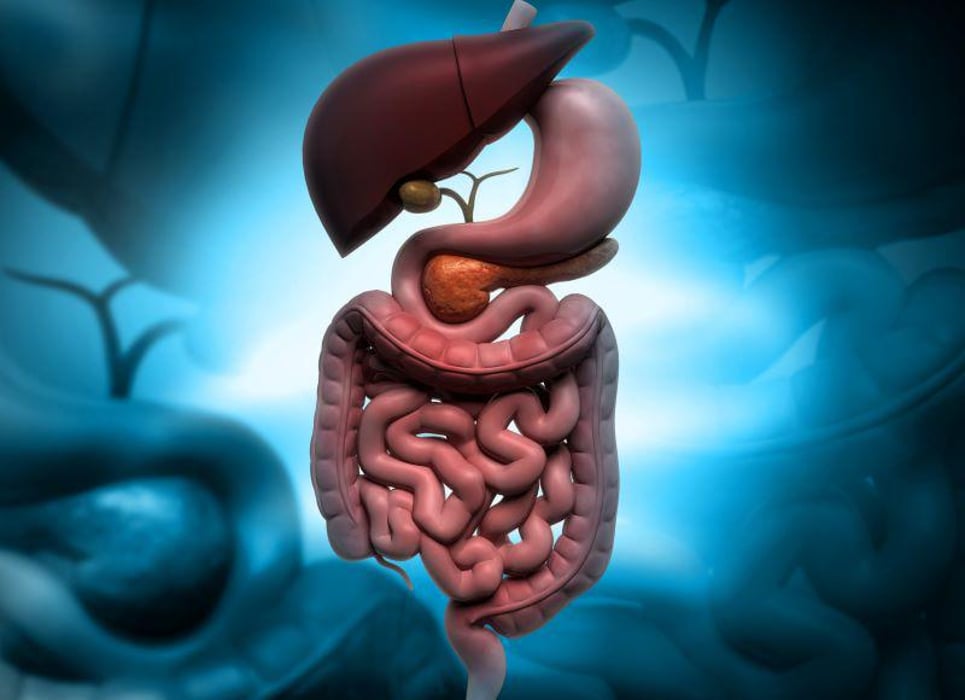American College of Gastroenterology, Oct. 22-27

The annual meeting of the American College of Gastroenterology was held from Oct. 22 to 27 in Las Vegas and attracted 5,000 participants from around the world, including gastroenterology and digestive specialists and other health care professionals. The conference featured presentations focusing on clinical updates in gastroenterology and hepatology as well as the latest advances in digestive health and gastrointestinal disorders.
In one study, Syed Mobashshir Alam, M.D., of the Creighton University School of Medicine in Omaha, Nebraska, and colleagues found that nonsteroidal anti-inflammatory drugs (NSAIDs) and selective serotonin reuptake inhibitors (SSRIs), when used in combination, increase the likelihood of developing an upper gastrointestinal bleed.
The authors performed a comprehensive literature search from two databases. They narrowed down the search to 21 articles for formal review and found only 10 that were of a high quality. After reviewing the studies, the researchers found that for patients already on NSAID therapy (a high-risk group for gastrointestinal bleeding), the addition of an SSRI further increased the risk of upper gastrointestinal bleeding.
"We hypothesize that this is due to NSAIDs and SSRIs inhibiting two different physiological pathways to protect against bleeding. The synergistic effect of the two medications likely contributed the 75 percent increased risk of having an upper gastrointestinal bleed seen in our meta-analysis," Alam said. "Clinicians should discuss the risk of upper gastrointestinal bleeding in patients who regularly take NSAIDs before adding an SSRI. Ideally, NSAID use should be reduced or discontinued prior to starting SSRIs to minimize the risk of gastrointestinal bleed."
In another study, Steven Moss, M.D., of Brown University in Providence, Rhode Island, and colleagues found that Helicobacter pylori (H. pylori) antibiotic resistance profiling is very accurate when performed on stool specimens, and very similar to the results obtained by performing a biopsy within the stomach during endoscopy.
The authors obtained gastric biopsies and stool specimens from 71 patients with H. pylori infection. Both gastric and stool specimens were evaluated using next-generation sequencing to see if the H. pylori had mutations in genes conferring resistance to six different antibiotics used to eliminate H. pylori. The researchers found that the stool test results were exactly the same as the gastric results in 92 percent of the cases (65 of 71 patients).
"Stool testing to evaluate antibiotic resistance in H. pylori provides accurate, reliable results, without the need for endoscopy, which is invasive, expensive, and inconvenient," Moss said. "When patients and their doctors don't know which antibiotic combination to use to kill H. pylori (for example, after one or more treatment attempts have failed), they can find out which antibiotics H. pylori will be sensitive to by sending the patient's stool for molecular resistance testing, and avoid another endoscopy."
Naresh Gunaratnam, M.D., of Huron Gastroenterology Associates in Superior Township, Michigan, and colleagues found that over 80 percent of patients who have experienced telehealth and in-person visits feel that telehealth provides an acceptable way for them to receive their gastrointestinal care.
The authors sent an electronic survey to nearly 3,000 patients who had experience with telehealth and in-person visits within nine private practice gastrointestinal groups. The researchers found that nearly three in four patients felt they were receiving similar quality of care with telehealth as they would seeing their provider in the office. Approximately three in five patients felt that patient-physician interaction was similar. Furthermore, most patients were likely to use telehealth as the pandemic resolves because of ease of use and scheduling.
"Gastrointestinal practices should use telehealth to care for a subset of patients who find telehealth an acceptable way to receive their gastrointestinal care," Gunaratnam said.
Noting that obesity is a risk factor in the development of colorectal cancer, Zryan Shwani, M.D., of Johns Hopkins Sibley Memorial Hospital in Washington, D.C., and colleagues found that this risk factor can be reduced through weight loss medications (WLMs) or weight loss surgery (WLS) when lifestyle modifications alone fail to result in weight reduction.
Using the IBM Explorys health care database, which includes information for nearly 74 million de-identified unique patients across 300 hospitals in the United States, the authors compared outcomes for obese individuals who did or did not (control cohort) receive the interventions of either WLS or WLM. The incidence of colon or rectal neoplasm two years after initiation of the intervention was evaluated. Overall, both WLS and WLM were associated with lower risk for the development of colorectal cancer. The researchers reemphasized that obesity is more than just a cardiovascular risk factor, and it is significantly associated with increased risk of morbidity and mortality tied to colorectal cancer. WLS and WLM can be equally efficacious in reducing colorectal cancer risk, giving patients and providers multiple avenues to target obesity.
"Our data suggest that we should consider more aggressive interventions in our obese patients with higher-than-average risk," Shwani said. "We should be more mindful about providing resources for weight loss and referrals to weight management because obesity is more than just a cardiovascular risk."
Related Posts
Long COVID After Mild Infection? It Fades Within a Year
THURSDAY, Jan. 12, 2023 (HealthDay News) -- A large, new study offers reassuring...
Aromatherapy With Peppermint Oil Beneficial After Heart Surgery
MONDAY, Aug. 7, 2023 (HealthDay News) -- Use of aromatherapy with peppermint oil...
AAN: Mediterranean Diet Score Linked to Cognition in MS
THURSDAY, March 2, 2023 (HealthDay News) -- The Mediterranean diet score is...
High BP Tied to One in Eight Emergency Visits for Cardiovascular Issues
MONDAY, Sept. 26, 2022 (HealthDay News) -- There are significant sex differences...
